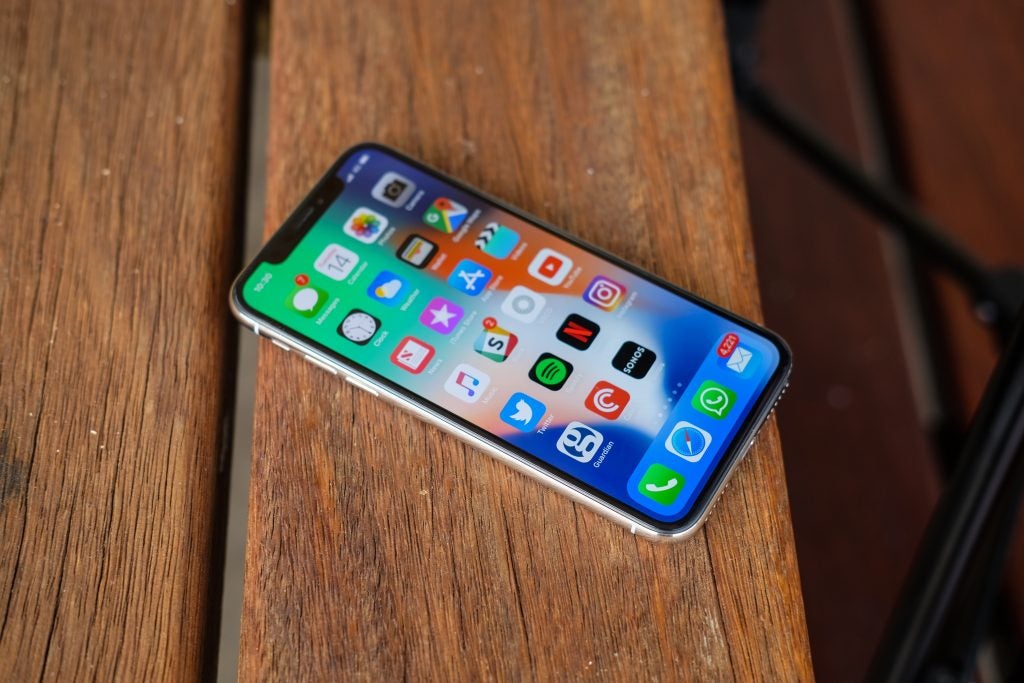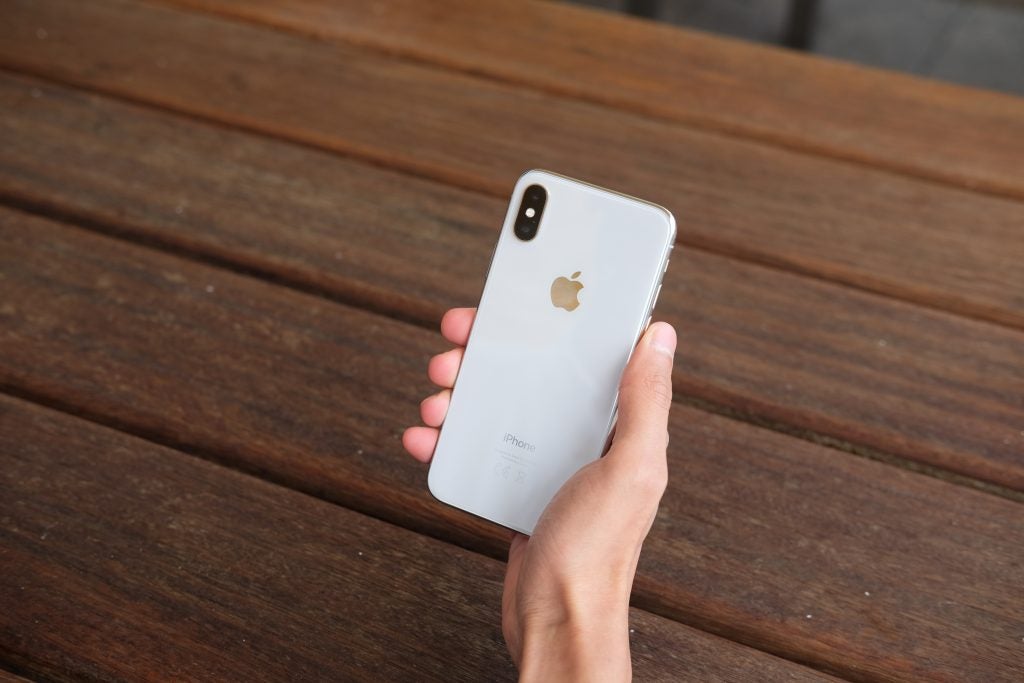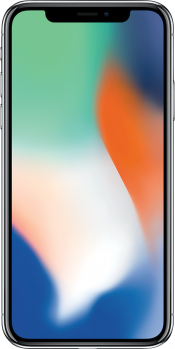What is the iPhone X?
The iPhone X isn’t sold officially by Apple anymore, having been replaced first by the iPhone XS and now the iPhone 11 and iPhone 11 Pro. You can still buy it though and while it hasn’t dropped too much in price, it can be had on offer during sales and days like Black Friday.
If you pick up the iPhone X now you’ll still be getting a great buy. It has just been updated to iOS 13 so you’ll be able to get access to new features like Dark Mode, a much better Apple Maps app and much more. You’ll also likely get an update to iOS 14 next year as Apple remains very good at updating its old phones to newer software.
The iPhone X remains a strong buy in other areas too. It looks very similar to the latest iPhone 11 Pro, has a great screen (that supports HDR in iTunes and Netflix) and a camera that still stands up there with the better ones you can buy. If you want a slightly bigger device that might even come in cheaper than the iPhone X it might be worth looking at the iPhone XR which has just received a significant price drop.
if you want to know more about the iPhone X you can read our original review below.
iPhone X Design – This phone reignited Apple’s phone design skills
Apple has been coasting for too long with the design it introduced for the iPhone 6, but that all changes with the iPhone X – in a big way. You don’t need me to tell you the iPhone X is a huge departure from the iPhone design of old – just look at the pictures. Not only does it look good, however; Apple has done a fantastic job at actually making it feel really good too.
Related: OnePlus 7T review
This phone is simply gorgeous. It’s slightly taller than the iPhone 8 (and 7 and 6) but much narrower and smaller than the iPhone 8 Plus. It strikes the perfect balance, especially since you’re getting a 5.8-inch display here.

The aluminium sides have been swapped out for stainless steel – as seen on the Apple Watch – and the front and rear of the device are glass. I received the Silver variant for review – and, unfortunately, it wasn’t long before it was covered in fingerprints, those shiny sides being a particular magnet. This is a phone that looks fantastic straight after a wipe-down; not so much a few hours after it’s been in your greasy palms.
Also of concern is how the iPhone X will fare over time. No matter how unscientific they might be, drop tests indicate that the finish here doesn’t lend itself well to wear and tear. After all, the stainless steel Apple Watch I’ve been using is a scratched-up mess. As a result, my iPhone X has spent much of its time inside an Apple case, but this certainly sees it lose points in the glamour stakes.
It’s around the front of the iPhone X that the magic happens, though. The iPhone 8 has an extensive bezel running around the display, but the iPhone X doesn’t. The lack of a thick bezel means there’s no room for the Home button, a feature present on every single iPhone iteration until now. As a result, there’s no Touch ID fingerprint scanner. Instead, the iPhone X sees Apple introduce facial recognition – a bold move.
All of the components for Face ID (infrared camera, flood illuminator, dot projector) are housed in what’s affectionately being called the ‘notch’. You’ll find the notch at the top of the display, where it somewhat disrupts that all-screen look. There’s been much controversy concerning the notch with regards to it completely ruining the immersive experience. Once you begin using the phone, however, I’ve found that it simply blends into the background.
Sure, you notice it when the screen is on, plus it juts into video if you’re playing something full-screen. But in all other instances it fades into the background. Certain apps – Apple’s Music being one – use software trickery to blank out the notch, and some apps clearly need to be updated to ensure important buttons aren’t hidden by it.

In the space either side of the notch you’ll find the battery indicator and time. Annoyingly, you can no longer see the battery percentage remaining or whether you have a pair headphones connected without opening the Control Center. The bigger annoyance is that the battery and signal indicators aren’t in line with the bottom of the notch, so they dip slightly below and look rather weird.
I do feel that the notch gives the iPhone X a bit of character and a distinctive look, something lost by the dismissal of the Home button. I’m sure Apple would get rid of it in an instant if it could cram this tech inside the bezel; but it does feel as though the company wants to use it as a distinguishing feature while it’s here.

iPhone X Face ID – How Apple replaced the iconic Touch ID
I’ve used Samsung’s face unlock and iris scanners a fair bit, and have never been particularly impressed by either their speed or accuracy. So it was important that Apple’s Face ID worked every single time.
It works accurately in both the light and dark; it can’t be fooled by pictures or masks; and it works if you’re wearing glasses too. There have been reports that twins have fooled it, and Apple told me some IR-blocking sunnies won’t work, but these are limited scenarios. Note that you need to be ‘actively aware’ for it to work – you can’t just shove it in someone’s face and expect it to unlock.

Face ID isn’t perfect, though, but then neither was Touch ID; the fingerprint scanner was poor if your fingers were slightly greasy or wet. This isn’t a problem now. However, I have found that Face ID struggles if my eyes are a shrivelled mess, usually first thing in the morning, and if the phone isn’t close enough to my face. If you’re the type of person who tries to sneak a look at their notifications with your phone at pocket-level then you’re out of luck.
Apps that previously used Touch ID as a means of unlocking will automatically be replaced by Face ID without the need for an update, and you can of course use it for Apple Pay payments too.
iPhone X Screen – Nearly the same you’ll find on the iPhone 11
The iPhone X sees Apple switch out its usual LCD screen tech for an OLED panel for the first time. Samsung, Google and many other Android phone makers have been using this technology for some time now, and it’s nice to see Apple finally joining the fray with a product other than the Apple Watch. This is also the highest-resolution screen ever on an iPhone, with a slightly odd 2436 x 1125 pixels, plus there’s support for the DCI P3 colour gamut and Dolby Vision HDR.
Apple’s OLEDs come from Samsung, and while there’s a small shift to blue if you tilt the device off-axis, it’s far less noticeable than on the Pixel 2 XL. Apple says it’s made a fair few tweaks to this panel, and the company’s optimisation of it is certainly different to Samsung’s approach for its own Galaxy S9 and Note 8 panels. Colours on the iPhone X are more natural and the saturation isn’t quite so intense.

The iPhone X’s screen also benefits from True Tone, which alters the screen temperature depending on the environment you’re in. 3D Touch makes a return, too, allowing you to perform alternative actions on applying different levels of pressure on the screen.
Whether or not you’re a fan of the iPhone X’s display will come down to what features you value most in a screen. For me, this is the best screen on any handset I’ve seen. I downloaded a few HDR-enabled movies from iTunes – something you can’t do on Android – and they’re stunning. I wouldn’t normally watch an entire film on a sub 6-inch screen, but on the iPhone X I did – and I wasn’t distracted by the notch at all.
The post iPhone X Review appeared first on Trusted Reviews.
Read More



Post a Comment